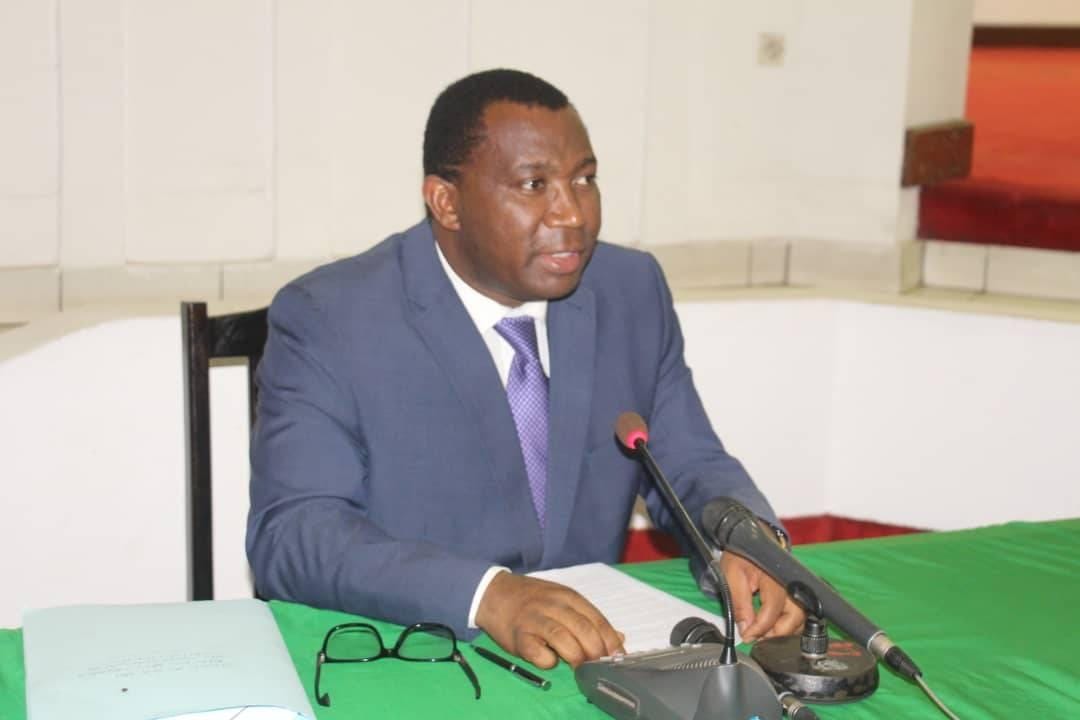A new bill for the insurance sector in Burundi
The Briefing, Issue #47, Wednesday February 26, 2020

Dear readers,
The national assembly, this Wednesday analyzed of the Bill revising Law No. 1/02 of January 7, 2014, on the insurance code in Burundi.
The Minister of Finance Dr. Domitien NDIHOKUBWAYO was the guest, he explained to the members of the parliament the importance of revising of the bill—and answered their questions.
As Minister Domitien Ndihokubwayo indicated, the law of 2014 on the insurance code had errors and imperfections both in terms of content and form. In addition, some of the provisions were contrary to the Constitution.
In the new bill, children will henceforth in the compensation process be assimilated to adults who don’t have income.
In the event of an accident, this new bill obliges the insurer who guarantees civil liability due to a land motor vehicle to present an offer of compensation to the victim within a period not exceeding three months from the date of the compensation request and provides for sanctions in the event of failure to comply with this deadline.
The Member of the parliament asked that there be effective control of services provided by insurance companies, their incomes, to make sure that dividends are distributed correctly to shareholders and affiliates.
After the analysis, the Bill revising Law No. 1/02 of January 7, 2014, on the insurance code in Burundi was adopted unanimously.
Burundi Insurance sector
In 2016, the penetration rate of the insurance sector in Burundi was 0.78% of GDP, the lowest in the EAC. Since 2017, the Burundi insurance market has been made up of 8 insurance companies (BIC, Bicor, Egic, Jubilee, Socabu, Socar, Sogear and Ucar).
From 2012 to 2016, the turnover achieved by this sector was constantly increasing. It went from 28 billion Fbu to 37 billion Fbu and it is expected to reach 80 billion FBU by 2022. But, compared to other countries in the region— in particular, the East Africa community —the Burundi insurance market is still narrow with a penetration rate over the 5 years, estimated on average, at 0.84% - apart Uganda, with almost the same penetration rate, Kenya, Rwanda and Tanzania have rates around 2 and 3%.
The latest report from ARCA ( Agence de Régulation et de Contrôle des Assurances) established the insurance penetration rate in Burundi at 0.78% of GDP in 2016 with more than 70% of the premiums generated by non-life insurance.
Socabu being the market leader with more than 40% of the premiums written in the sector, followed by Jubilee and Bicor, respectively, with 21% and 17%, of the shares.
Furthermore, it should be noted that the problem of low penetration rates remains a thorny problem almost everywhere in Africa.
According to the Swiss Re Institute 2017 report, “Africa remains a global dwarf in insurance. With the exception of South Africa, which has a high insurance penetration rate of 15%, and Morocco, with a rate of 3%, all other countries have insignificant insurance penetration rates with an average of around 1% in French-speaking countries. ”
Fabrice Iranzi
Founding Editor, RegionWeek.com
IN THE REGION
Twitter was ablaze Wednesday evening after the government announced that 239 passengers, who arrived in Nairobi aboard a China Southern flight, were cleared of coronavirus and advised to self-quarantine. Some airlines originating from China are still being allowed to land in Nairobi weeks after Kenya Airways suspended its flights to and from China amid coronavirus outbreak. (Daily Nation)
The Uganda Revenue Authority has registered a second successive revenue collection shortfall, raising concerns about the health of the economy. Latest figures show the taxman collected net revenues of Ush9,042.01 billion ($2.4 billion) between July and December 2019 against a target of Ush9, 739.39 billion ($2.6 billion). This reflects a revenue deficit of Ush697.38 billion ($188 million), a figure higher than the record collection deficit of roughly Ush660 billion ($178 million) registered in the financial year 2017/18. This deficit could signal increased government borrowing or big spending cuts in operations to balance official expenditure with diminished revenues. URA blames the revenue shortfall on low production levels, falling consumer demand and weak economic conditions. (The East African)
Today, 15 children associated with armed forces and armed groups were released in South Sudan, UNICEF said. The boys ranging from 16 to 18 years of age were taken as prisoners of war during clashes in the northern parts of the country in 2019. Today marked the end of their imprisonment, their time in an armed group and the start of a new life. The release, which is supported by UNICEF, the UN Mission to South Sudan and the National Disarmament, Demobilization and Reintegration Commission, is happening just over two weeks after an Action Plan to end and prevent all grave violations against children was signed by the Government of South Sudan. The Action Plan is the first of its kind and the most comprehensive plan signed by parties since the creation of the Children and Armed Conflict mandate. (Unicef)
We want to hear from our Subscribers. Have a question? We’ll try to answer it. Email us editor@regionweek.com
RegionWeek is a Burundi-based media for a new generation of achievers in Africa, a platform devoted to chronicling the journey to Freedom and Empowerment.



